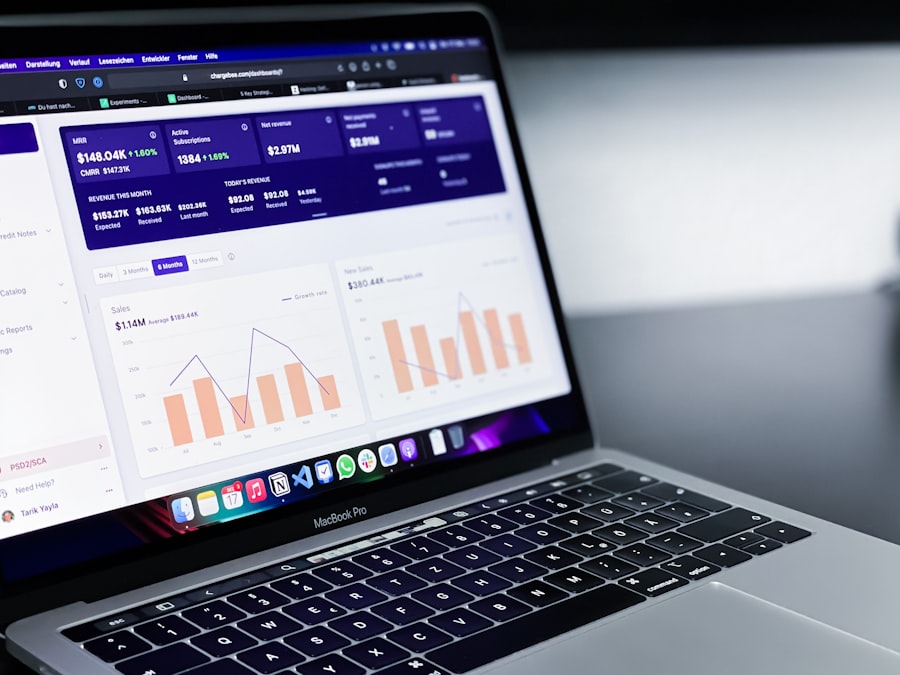Customer Relationship Management (CRM) automation has come a long way since its inception. In the early days, CRM systems were primarily used for storing customer data and managing interactions. However, as technology advanced, so did the capabilities of CRM automation. Today, CRM automation encompasses a wide range of functions, including lead management, sales forecasting, marketing automation, and customer service. The evolution of CRM automation has been driven by the need for businesses to better understand and engage with their customers. As competition in the marketplace has increased, businesses have turned to CRM automation to gain a competitive edge by providing personalized and efficient customer experiences.
Furthermore, the evolution of CRM automation has been shaped by advancements in technology. The shift towards cloud-based CRM solutions has made it easier for businesses to access and utilize CRM tools. Additionally, the integration of social media and mobile technology has transformed the way businesses interact with their customers. These advancements have allowed for more seamless and real-time communication, enabling businesses to better understand and respond to customer needs. Overall, the evolution of CRM automation has been driven by the need for businesses to adapt to changing customer expectations and behavior, as well as advancements in technology that have enabled more sophisticated and integrated CRM solutions.
Key Takeaways
- CRM automation has evolved from basic contact management to sophisticated customer engagement platforms.
- SMS-iT CRM’s innovative technology integrates SMS messaging with CRM to enhance customer communication and engagement.
- AI and machine learning have revolutionized CRM by enabling predictive analytics, personalized recommendations, and automated processes.
- Personalization and customization are key components of CRM automation, allowing businesses to tailor their interactions with customers.
- Mobile devices play a crucial role in CRM automation, enabling real-time communication and access to customer data on the go.
- The future of customer engagement with CRM automation will focus on seamless omnichannel experiences and hyper-personalization.
- Overcoming challenges in implementing CRM automation requires careful planning, employee training, and a focus on data security and privacy.
SMS-iT CRM’s Innovative Technology
SMS-iT CRM is at the forefront of innovative technology in the CRM automation space. With its user-friendly interface and powerful features, SMS-iT CRM is revolutionizing the way businesses manage their customer relationships. One of the key innovations of SMS-iT CRM is its integration of SMS marketing capabilities. This allows businesses to reach their customers directly through text messaging, providing a more personalized and immediate form of communication. Additionally, SMS-iT CRM’s advanced analytics and reporting tools provide businesses with valuable insights into customer behavior and preferences, enabling them to make data-driven decisions to improve customer engagement.
Another innovative feature of SMS-iT CRM is its use of artificial intelligence (AI) and machine learning. These technologies enable SMS-iT CRM to automate repetitive tasks, such as lead scoring and email personalization, freeing up valuable time for sales and marketing teams to focus on more strategic activities. Furthermore, AI and machine learning allow SMS-iT CRM to continuously learn from customer interactions and adapt its recommendations and actions accordingly, leading to more personalized and effective customer engagement. Overall, SMS-iT CRM’s innovative technology is setting a new standard for CRM automation, empowering businesses to build stronger and more meaningful relationships with their customers.
The Impact of AI and Machine Learning on CRM
AI and machine learning have had a profound impact on CRM automation, revolutionizing the way businesses engage with their customers. These technologies have enabled CRM systems to analyze vast amounts of data to uncover valuable insights into customer behavior and preferences. By leveraging AI and machine learning, businesses can now personalize their interactions with customers at scale, delivering targeted marketing messages and product recommendations based on individual preferences. Additionally, AI-powered chatbots have transformed customer service by providing immediate and accurate responses to customer inquiries, improving overall satisfaction and loyalty.
Furthermore, AI and machine learning have enhanced the predictive capabilities of CRM systems, enabling businesses to forecast sales trends and identify potential opportunities with greater accuracy. This has empowered sales teams to prioritize leads more effectively and focus their efforts on high-value prospects. Additionally, AI-powered automation has streamlined repetitive tasks, such as data entry and lead scoring, freeing up valuable time for sales and marketing teams to focus on building relationships with customers. Overall, the impact of AI and machine learning on CRM automation has been transformative, enabling businesses to deliver more personalized and efficient customer experiences.
Personalization and Customization in CRM Automation
Personalization and customization are key components of effective CRM automation, allowing businesses to tailor their interactions with customers to meet individual needs and preferences. With the advancements in technology, CRM systems now have the capability to capture and analyze vast amounts of customer data, enabling businesses to create highly personalized marketing campaigns and product recommendations. By leveraging this data, businesses can deliver targeted messages that resonate with customers on a personal level, leading to higher engagement and conversion rates.
Moreover, customization in CRM automation allows businesses to adapt their processes to align with specific industry requirements and business objectives. This flexibility enables businesses to tailor their CRM systems to meet their unique needs, whether it be in sales, marketing, or customer service. Additionally, customization allows businesses to integrate their CRM systems with other tools and platforms, creating a seamless and integrated workflow that enhances overall efficiency and productivity. Overall, personalization and customization are essential components of effective CRM automation, enabling businesses to build stronger relationships with their customers while also optimizing their internal processes.
The Role of Mobile Devices in CRM Automation
The role of mobile devices in CRM automation has become increasingly important as more customers rely on their smartphones for communication and information. With the widespread use of mobile devices, businesses have recognized the need to engage with customers through mobile channels. CRM systems have adapted to this shift by providing mobile-friendly interfaces and applications that enable sales and marketing teams to access customer data and manage interactions on the go.
Furthermore, mobile devices have enabled businesses to leverage location-based services to deliver targeted marketing messages and promotions to customers based on their geographic location. This level of personalization has proven to be highly effective in engaging customers and driving sales. Additionally, mobile devices have facilitated real-time communication between businesses and customers through channels such as text messaging and mobile apps, allowing for more immediate and personalized interactions.
Overall, the role of mobile devices in CRM automation has transformed the way businesses engage with their customers, providing new opportunities for personalized communication and real-time interaction.
The Future of Customer Engagement with CRM Automation

The future of customer engagement with CRM automation is poised for further innovation and advancement as technology continues to evolve. One key area of development is the integration of augmented reality (AR) and virtual reality (VR) into CRM systems. These technologies have the potential to revolutionize the way businesses showcase products and engage with customers by creating immersive and interactive experiences. By integrating AR and VR into CRM automation, businesses can provide customers with a more personalized and engaging shopping experience, ultimately driving higher levels of satisfaction and loyalty.
Another area of future development is the use of voice-activated assistants in CRM systems. As voice technology continues to advance, businesses will be able to leverage voice-activated assistants to provide more seamless and natural interactions with customers. This will enable businesses to deliver personalized recommendations and support through voice commands, further enhancing the overall customer experience.
Furthermore, the future of customer engagement with CRM automation will likely see continued advancements in AI and machine learning capabilities. These technologies will enable businesses to further personalize their interactions with customers by predicting their needs and preferences with greater accuracy.
Overall, the future of customer engagement with CRM automation holds great promise for delivering even more personalized, efficient, and immersive experiences for customers.
Overcoming Challenges in Implementing CRM Automation
While the benefits of CRM automation are clear, there are also challenges that businesses may face when implementing these systems. One common challenge is ensuring data accuracy and consistency across the organization. With multiple departments using the CRM system, it is crucial to establish standardized processes for data entry and management to ensure that the information being collected is reliable and actionable.
Another challenge is resistance to change from employees who may be accustomed to traditional methods of customer relationship management. To overcome this challenge, businesses must invest in comprehensive training programs to educate employees on the benefits of CRM automation and how it can improve their day-to-day workflows.
Additionally, integrating CRM systems with existing tools and platforms can present technical challenges that require careful planning and execution. Businesses must ensure that their CRM systems seamlessly integrate with other business-critical applications to avoid disruptions in workflow.
Furthermore, cybersecurity concerns are a significant challenge when implementing CRM automation. With sensitive customer data being stored in these systems, businesses must prioritize security measures to protect against potential breaches or data leaks.
In conclusion, while there are challenges in implementing CRM automation, businesses can overcome these obstacles through careful planning, investment in training programs, and prioritizing data security measures. By addressing these challenges proactively, businesses can fully realize the benefits of CRM automation in improving customer engagement and driving business growth.
If you’re interested in learning more about how SMS-iT CRM is revolutionizing the way small businesses manage their customer relationships, be sure to check out their article on SMS-iT CRM Software for Small Businesses. This article provides valuable insights into how their cutting-edge technology is specifically tailored to meet the needs of small businesses, making it easier than ever to streamline processes and improve customer interactions.
FAQs
What is CRM automation?
CRM automation refers to the use of technology to automate and streamline customer relationship management processes. This can include automating tasks such as data entry, lead nurturing, and customer communication.
What are the benefits of CRM automation?
CRM automation can lead to increased efficiency, improved customer relationships, and better data management. It can also help businesses save time and resources by automating repetitive tasks.
How does SMS-iT CRM’s technology contribute to the future of CRM automation?
SMS-iT CRM’s cutting-edge technology offers advanced automation features such as AI-powered lead scoring, automated customer communication through SMS and chatbots, and predictive analytics for personalized customer experiences. These features are designed to enhance the efficiency and effectiveness of CRM processes.
What are some key features of SMS-iT CRM’s cutting-edge technology?
Some key features of SMS-iT CRM’s technology include AI-powered lead scoring, automated customer communication through SMS and chatbots, predictive analytics for personalized customer experiences, and integration with other business systems for seamless data management.
How can businesses benefit from SMS-iT CRM’s cutting-edge technology?
Businesses can benefit from SMS-iT CRM’s technology by improving their customer relationship management processes, increasing efficiency, and gaining valuable insights from predictive analytics. This can ultimately lead to better customer relationships and increased revenue.







